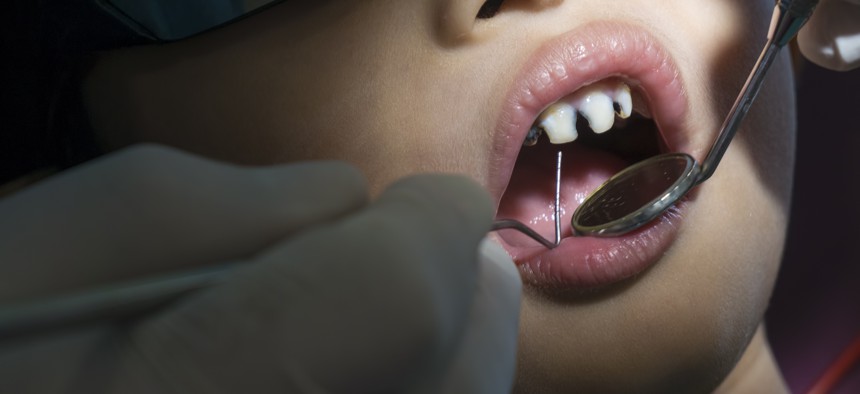Stats Shot: Michigan’s Uneven Dental Care Access Is Nothing to Smile At

Pok Leh / Shutterstock.com
Despite the Great Lakes State's adequate supply of dental professionals on a per population basis, seniors, pregnant women and low-income adults and children face significant gaps in oral health access.
This is the second installment in a semi-regular series of posts looking at the statistics that shape state, county and municipal governments and the communities they serve across the United States.
Here are some statistics that are unlikely to be highlighted in any Pure Michigan promotional materials.
A new report released by the Michigan Council for Maternal and Child Health and the Center for Health Workforce Studies shows that limited access to oral health services continues to be a problem in the Great Lakes State, with disproportionately affected areas in Michigan’s Upper Peninsula, northern Lower Peninsula and in the city of Detroit. There are also significant gaps in oral health care access for seniors, pregnant women and low-income adults and children.
That’s despite “a seemingly adequate supply of dental professionals on a per population basis,” according to the report. “In 2014, there were almost 7,700 dentists and approximately 10,500 dental hygienists licensed to practice in Michigan.”
Some key takeaways from Wednesday’s announcement are nothing to smile about:
- Nearly half of seniors living in alternative long-term care facilities in 2010 had not seen a dentist in the prior year.
- More than 60 percent of Medicaid-eligible children did not receive any dental services in 2013, and Michigan lags behind the national average.
- 3 out of 4 new mothers in 2008 did not receive any dental care during their most recent pregnancy.
- The number of Detroit third-graders in need of immediate dental care was more than double the rate of children in need statewide.
- 70 percent of third-graders in the Upper Peninsula had a history of dental decay, compared to 56 percent statewide.
- 76 out of Michigan’s 83 counties have at least one dental health shortage area.
“Michigan’s policymakers need to do more to expand dental care to reach at-risk children and adults,” Karlene Ketola, executive director of the Michigan Oral Health Coalition, said in a statement.
Read the full report here.

NEXT STORY: On Medicaid Expansion, a Question of Math and Politics






